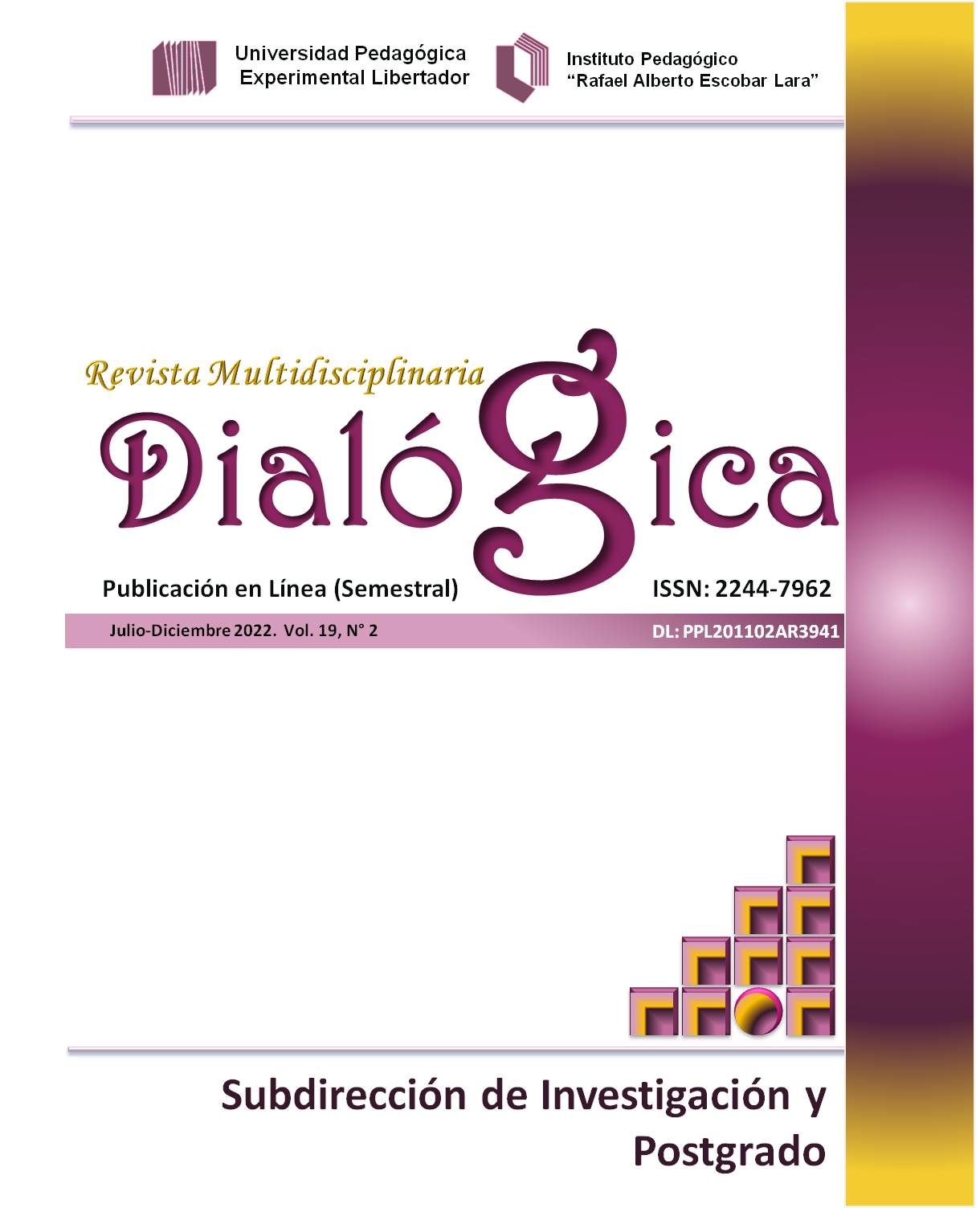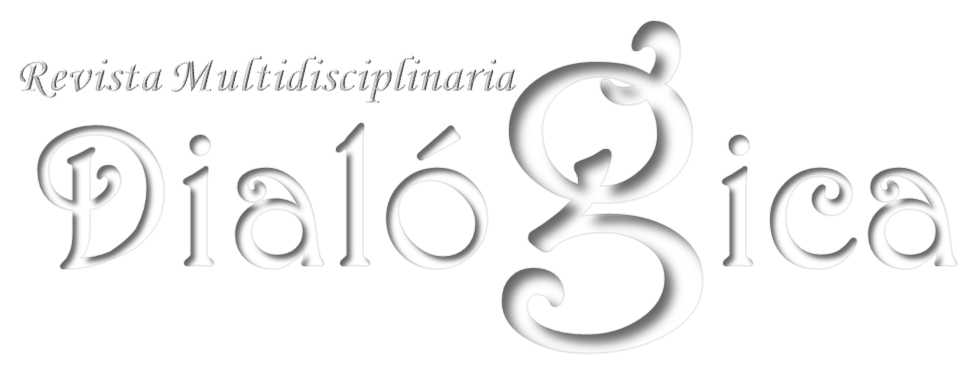ARTICULATION OF EDUCATIONAL PRAXIS AND TEACHER SELF-CONCEPT: A PHENOMENOLOGICAL LOOK AT THE KNOWLEDGE CONSTRUCTION PROCESS
DOI:
https://doi.org/10.56219/dialgica.v19i2.2154Keywords:
resignification, otherness, insertionAbstract
Educational systems have historically had a reinforcing role for each human being, social norms and standards are different in each culture and have been significantly transformed over the centuries, however the teacher has had the need to resignify himself as a human being and reconfigure his educational praxis according to the image he has of himself, which is why the self-concept adds to his educational praxis substantial elements that give sustainability to the construction of knowledge. This research was carried out under the qualitative paradigm since the subject to be dealt with is related to socio-cultural phenomena, it also assumed a humanistic stance to understand the social reality of the key subject that is part of this study, the method used was the phenomenological, this achieved an approach, comprehensive, cooperative and unblocked, insertion, the otherness to achieve conscious intellectual elaboration; and construction, reflection, to uncover the teachers' own thinking.
References
Aristóteles. (1985). Ética nicomáquea. Ética eudemia. Gredos.
Bauman, Y. (2005). Identidad. Losada.
Castellar. G y Lozano, H. (2018). La escuela (5ta. ed.). Azul Intenso.
Castillo, T. y Meléndez, B. (2017). Autoconcepto, Autoestima y Aprendizaje Escolar. Psicothema, Colegio Oficial de Psicólogos del Principado de Asturias.
Gómez. R. (2018). El autoconcepto del docente universitario (3era. ed.). Panapo.
Latorre, A. (2000). La reflexión en la formación del profesor. Tesis Doctoral. Universitat de Barcelona. España.
Luna, A. (2013f). Expectativas personales, factores contextuales y fracaso escolar en niñas, niños y jóvenes de escuelas públicas en Pernambuco-Brasil. Tesis Doctoral. España. Programa de Doctorado en Psicología de la Universidad de Oviedo. http://digibuo.uniovi.es/dspace/bitstream/10651/18266/2/TDLunaMonte iro.pdf
Márquez, P. (2000). Sociología de la Educación. Fedupel-Serie Azul.
Martínez, J.(2018). Educación y sociedad. La Toree.
Moreno, A. (1999). Fenomenología. Vadell Hnos.
Pérez, W. y Quintero, E. (2016). Competencias docentes para la construcción del conocimiento de los estudiantes de educación primaria. Revista Scientific.
Piña, E. (2010). Los significados de la praxis pedagógica en los docentes formadores de formadores. Universidad Pedagógica Experimental Libertador Caracas, Venezuela.
Quintero, K. (2020). Importancia del Autoconcepto para la Construcción del Conocimiento. Revista Scientific, 5(16). Instituto Internacional de Investigación y Desarrollo Tecnológico Educativo Venezuela.
Quintero, T. y Pérez, B. (2016). Construcción del conocimiento. Material mimeografiado.
Roche, P. (2018). Autoconcepto Forma 5. AF5. TEA
Rodríguez, G. (2006). El enfoque cualitativo. Metodología de la investigación cualitativa. Aljib.
Romaya-Blandon, B. (2017). Re-construyendo las identidades afrocolombianas desde adentro, una posibilidad de vivirlas y no de sufrirlas. https://bibliotecadigital.udea.edu.co/bitstream/10495/9860/1/EB0352_betsymayel isroma na.pdf


 @revistadialogica
@revistadialogica DialogicaUPEL
DialogicaUPEL RevistaDialogicaUPELMaracay
RevistaDialogicaUPELMaracay dialógicaupel@gmail.com
dialógicaupel@gmail.com dialogicaupel.blogspot.com
dialogicaupel.blogspot.com https://issuu.com/dialogicaupel
https://issuu.com/dialogicaupel https://revistas.upel.edu.ve/index.php/dialogica/
https://revistas.upel.edu.ve/index.php/dialogica/









